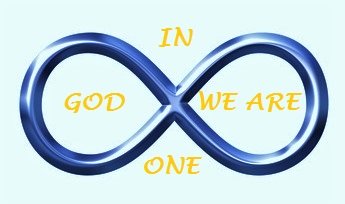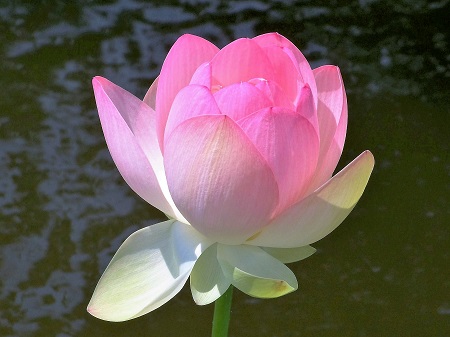Creationist Religious Beliefs: Defining and Limiting the Divine
Creationist beliefs hold a central place in many religious traditions, presenting a framework for understanding the origins of the universe and life itself. These beliefs often draw from sacred texts that describe a divine act of creation by a supreme being. While these narratives offer profound insights and a sense of purpose, they can also be seen as attempts to define and limit the divine. By presenting a fixed account of creation, these beliefs may inadvertently constrain the infinite nature of the divine and the vastness of its creative power. This web page explores the argument that creationist religious beliefs, while meaningful and significant, ultimately attempt to define and limit the divine.
The Nature of Creationist Beliefs
Creationist beliefs typically assert that the universe and all life within it were created by a divine being. These narratives are often found in the sacred texts of various religions, such as the Book of Genesis in the Bible, which describes God creating the world in six days, and similar accounts in other religious traditions. These stories serve as foundational myths, providing adherents with a sense of origin, purpose, and meaning.
In Christianity, creationism often takes the form of Young Earth Creationism, which interprets the Genesis account literally, suggesting that the Earth is only a few thousand years old. Other forms of creationism, such as Old Earth Creationism, accept a longer timescale but still maintain that life was directly created by God. These beliefs are not unique to Christianity; similar themes can be found in Islam, Judaism, Hinduism, and other religions, each with its own creation narratives.
Defining the Divine Through Creation Narratives
Creationist beliefs, by their nature, attempt to define the divine by attributing specific actions and characteristics to the supreme being responsible for creation. In doing so, they provide a tangible and understandable account of the divine's role in the origin of the universe. This process of definition helps adherents relate to the divine, offering a framework for worship and understanding.
However, this act of defining the divine through specific creation narratives can also be limiting. By presenting a fixed story of creation, these beliefs imply a certain finality and completeness to the divine's creative act. This can constrain the divine to a specific role and set of actions, reducing the infinite and transcendent nature of the divine to a series of defined events.
The Limitations of Human Understanding
Human understanding is inherently limited by our sensory experiences, cultural contexts, and cognitive capacities. When we attempt to comprehend something as vast and transcendent as the divine, we inevitably fall short. Creationist beliefs, while meaningful and profound, are ultimately human constructs that reflect our limited perspective.
Theologians and philosophers have long acknowledged these limitations. For instance, St. Augustine of Hippo, an early Christian theologian, suggested that the Genesis creation narrative was not meant to be taken literally but rather as a metaphorical account to convey deeper spiritual truths. This perspective recognizes that human language and understanding are insufficient to fully capture the divine reality.
The Infinite Nature of the Divine
The divine, by many theological standards, is considered infinite, eternal, and beyond human comprehension. Attempts to define the divine through specific creation narratives can obscure this infinite nature. By focusing on a particular account of creation, these beliefs may overlook the boundless and ongoing creative power of the divine.
In many religious traditions, the infinite nature of the divine is emphasized. For example, in Hinduism, the concept of Brahman represents the ultimate reality that is beyond all forms and descriptions. The creation narratives in Hinduism, such as those involving Brahma, Vishnu, and Shiva, are seen as cyclical and ongoing, reflecting the continuous and dynamic nature of divine creativity.
Similarly, in Islamic theology, the concept of Tawhid emphasizes the absolute oneness and transcendence of God. The Quran describes God's creation as ongoing and ever-present, with God continuously bringing forth new realities. This perspective highlights the idea that the divine's creative power is not limited to a single event but is an eternal and infinite process.
The Danger of Idolatry
One significant concern with creationist beliefs is the potential for idolatry, where the narrative itself becomes an object of worship rather than pointing towards the true divine source. By focusing too rigidly on a specific account of creation, believers may risk elevating the story above the divine reality it seeks to describe.
In the Judeo-Christian tradition, the prohibition against idolatry is a central theme. The Ten Commandments explicitly warn against making and worshipping images or likenesses of anything in heaven or on earth. This commandment underscores the importance of worshipping the true, formless divine rather than any specific representation or narrative.
Embracing Mystery and Transcendence
Recognizing the limitations of creationist beliefs does not render them meaningless. Instead, it invites a deeper, more humble approach to understanding the divine. By acknowledging that our creation narratives are human attempts to grasp the infinite, we can open ourselves to the mystery and transcendence of the divine.
This perspective encourages a spirituality that is dynamic and open to continual discovery. It fosters an attitude of humility, recognizing that while our beliefs and narratives are significant, they are ultimately incomplete and provisional. By embracing the mystery of the divine, we can cultivate a faith that is rooted in awe, wonder, and the ongoing pursuit of deeper understanding.
The Role of Metaphor and Symbolism
Many theologians and spiritual leaders advocate for interpreting creation narratives metaphorically rather than literally. This approach allows for a richer and more nuanced understanding of the divine, one that transcends the limitations of literal interpretation.
In Christianity, the use of metaphor and symbolism is prevalent in the teachings of Jesus, who often used parables to convey deeper spiritual truths. Similarly, the mystical traditions within Islam, such as Sufism, employ poetry and metaphor to express the ineffable nature of God. These approaches recognize that the divine reality is too vast to be confined to literal descriptions, inviting believers to look beyond the surface of the narratives.
Conclusion
Creationist religious beliefs provide meaningful frameworks for understanding the origins of the universe and our place within it. However, by attempting to define the divine through specific creation narratives, these beliefs can inadvertently limit the infinite nature of the divine. Human understanding, being inherently limited, cannot fully capture the transcendent and boundless reality of the divine.
By recognizing these limitations, we can approach the divine with humility, openness, and a sense of wonder. Embracing the mystery and transcendence of the divine encourages a dynamic and evolving spirituality that continually seeks deeper understanding. By interpreting creation narratives metaphorically and symbolically, we can honor the profound insights they offer while remaining open to the infinite possibilities of the divine reality.
In this way, we can move beyond the constraints of defined creationist beliefs and towards a more expansive and inclusive vision of the divine, one that truly honors its infinite and boundless nature.

